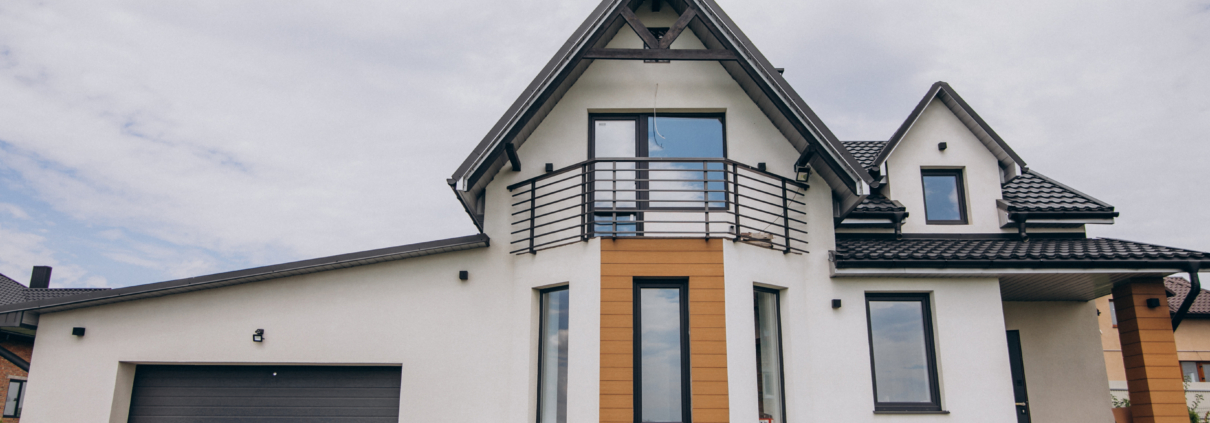How Will a Property Owned Jointly by a Husband and Wife Be Distributed If One of Them Dies?
Shafi'i Fiqh
Answered by Shaykh Irshaad Sedick
Question
If a husband and wife living in the West jointly own an asset such as a home or a bank account, how will it be distributed on the death of one of them? In this case, all the assets were acquired during the marriage from the husband’s income while the wife left her job to take care of the home and children. Their only children are from their marriage to each other.
If either of them died, would the surviving spouse receive 50% of what they own in addition to their Islamic share of the deceased’s remaining 50%? Is it true that the wife cannot claim 50% of the jointly owned asset as hers because she did not earn it?
Answer
In the Name of Allah, the Most Merciful and Compassionate. May Allah guide us to that which pleases Him, forgive us for our shortcomings, and alleviate our difficulties, Amin.
In Islam, ownership is not automatically distributed between husband and wife. In other words, what the husband owns and purchases belongs to the husband, and ownership does not automatically devolve to his wife, regardless of the prevailing secular law. If the husband wishes to share his assets with his wife, he must legally transfer part ownership to his wife under Sacred Law, and Allah knows best.
Making a Last Will
The safest and wisest way to construct your last will by Sacred Law is to clearly state that your entire estate (after paying off debts and bequests) should be distributed according to Sacred Law (Shariʿa) according to the School of Thought (Madhhab) to which you subscribe. In addition, appoint a reliable scholar, or better still, a group of reliable scholars to oversee the distribution process according to Sacred Law, and Allah knows best.
Stipulating One’s Heirs
Each person’s heirs will only be known upon the event of their death because our heirs and their specific circumstances may change before we pass away. Specifying each person’s shares in one’s will may thus be problematic, depending on how one words the will, and it may be safer to state that one’s estate should be divided per Sacred Law.
Practical Problems
The first issue is ownership. You both must clarify precisely who of you owns what. Does the house belong to your husband, or are you joint property owners, etc.? Once you have resolved the ownership issue, you can then decide (if you so wish) to gift certain assets to specific individuals now while you’re both alive. Doing the above may help circumvent issues that may arise after one of you passes away. However, it would be best if you did not use the above to try and change the outcome of Sacred Law, and Allah knows best.
Division of the Estate
Technically, one’s estate should be divided as soon as possible, after one passes and any debts and bequests have been covered. Sacred Law prescribes the immediacy of the distribution to ensure that the rightful heirs receive what is due to them since they automatically become the rightful owners of their shares upon the passing in question. Given contemporary living arrangements, circumstances do not always allow for the immediate distribution of the estate. Importantly, any delay or change in the estate’s distribution can only occur if all heirs agree to such an arrangement. Should any of the rightful heirs refuse or change their minds about alternative arrangements, they have the right to do so, and their shares must be processed accordingly, and Allah knows best.
Practical Division
Everything one owns forms part of one’s estate upon death and should, therefore, be distributed according to Sacred Law. It would be best, if possible, to liquidate all the deceased individual’s assets and then distribute the money as per Sacred Law’s stipulated shares. If, however, the heirs agree to an alternative arrangement whereby the equivalent value of each heir’s share is given in the form of assets, this is also permissible, and Allah knows best.
I pray this is of benefit.
[Shaykh] Irshaad Sedick
Checked and Approved by Shaykh Faraz Rabbani
Shaykh Irshaad Sedick was raised in South Africa in a traditional Muslim family. He graduated from Dar al-Ulum al-Arabiyyah al-Islamiyyah in Strand, Western Cape, under the guidance of the late world-renowned scholar, Shaykh Taha Karaan. Shaykh Irshaad received Ijaza from many luminaries of the Islamic world, including Shaykh Taha Karaan, Mawlana Yusuf Karaan, and Mawlana Abdul Hafeez Makki, among others. He is the author of the text “The Musnad of Ahmad ibn Hanbal: A Hujjah or not?” He has served as the Director of the Discover Islam Centre and Al Jeem Foundation. For the last five years till present, he has served as the Khatib of Masjid (ar-Rashideen), Mowbray, Cape Town. Shaykh Irshaad has thirteen years of teaching experience at some of the leading Islamic institutes in Cape Town. He is currently building an Islamic online learning and media platform called ‘Isnad Academy’ and pursuing his Master’s degree in the study of Islam at the University of Johannesburg. He has a keen interest in healthy living and fitness.
 senivpetro on freepik
senivpetro on freepik